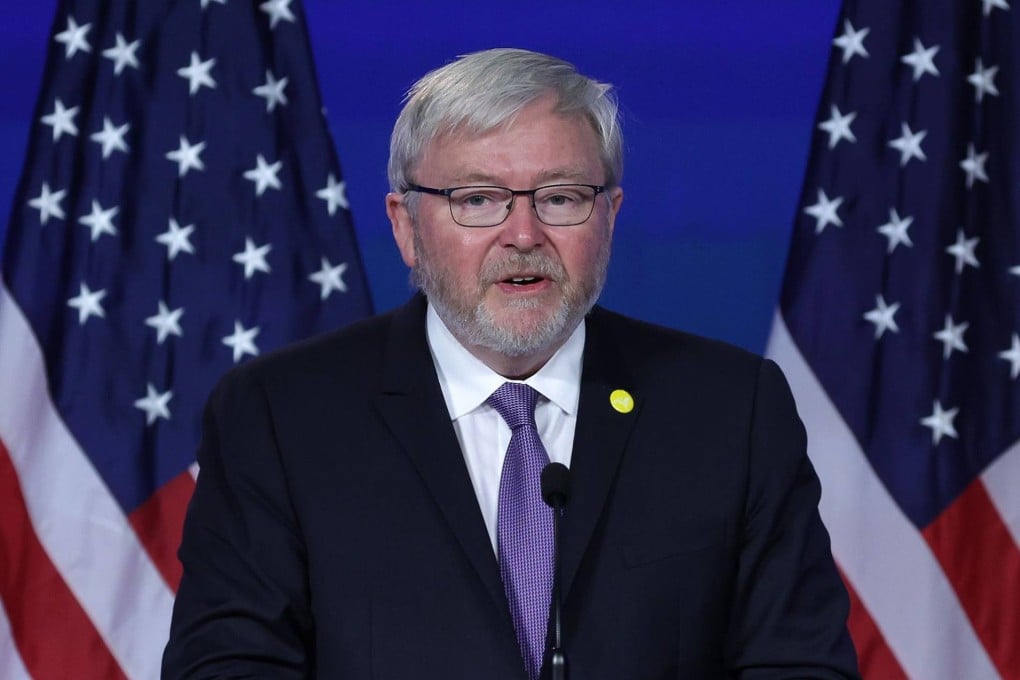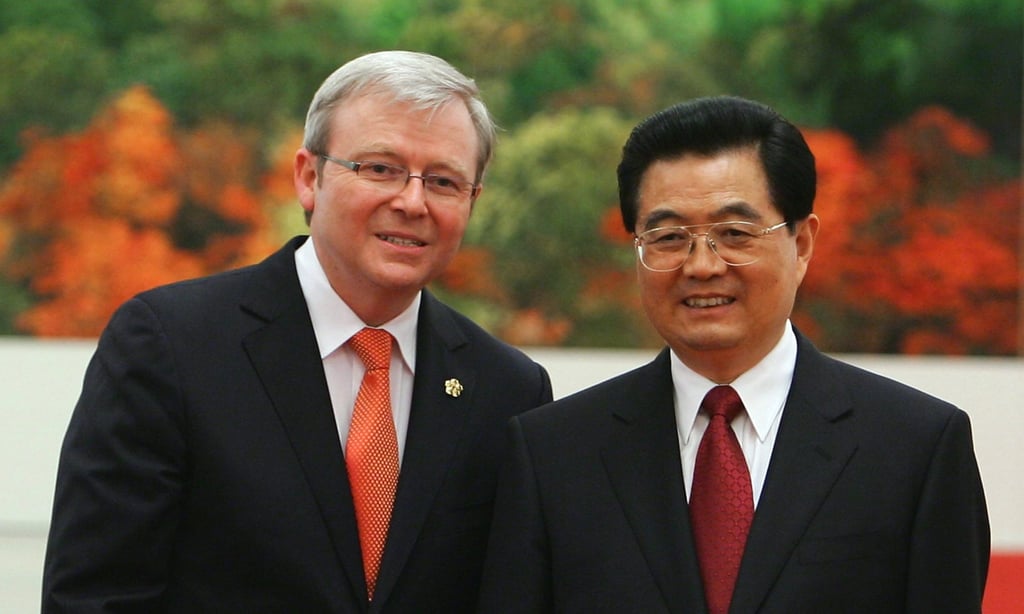Kevin Rudd’s China experience will inject nuance into US-Australia ties, Aukus pact
- Former Australian PM has won praise for his knowledge and network of China, and fluency in Mandarin
- Rudd’s presence could also help US, Australia, China adopt ‘more realistic and pragmatic approach’ towards managing their ties, experts say

Rudd, 65, who served two terms as prime minister of Australia, is a lifelong China academic who since exiting domestic politics has been a prominent Western voice on Beijing’s strategic view of the world, winning praise in some quarters for the knowledge – including fluent Mandarin – and network he brings to the table.
Announcing his appointment, Australian Prime Minister Anthony Albanese praised Rudd as one of the world’s foremost China experts and said he would bring a depth of experience to the posting at a time when the region was being reshaped by strategic competition.

“It is no accident we are engaged in Aukus and that those decisions require significant diplomatic, but also of course, a knowledge of the political structures that are in place,” Albanese said.